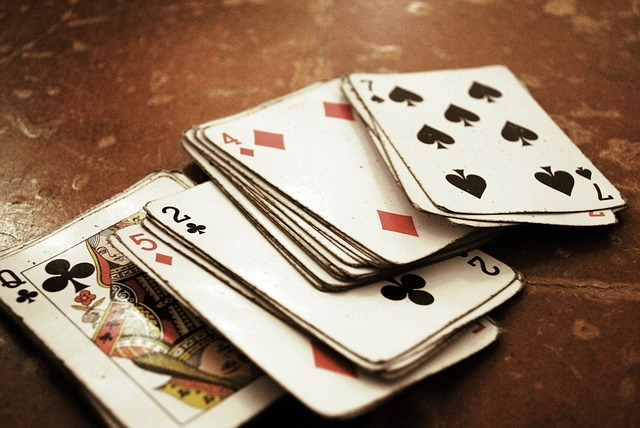Math Tricks

Overview
Students explore what makes a math trick work by analyzing verbal math expressions that describe each step in the trick.
Key Concepts
- Words can be used to describe mathematical operations.
- In a math trick, a person starts with a number, follows mathematical directions given in words, and ends up with the original number.
- Math tricks can be explained by examining the mathematical expressions that represent the verbal directions.
Goals and Learning Objectives
- Explore verbal expressions.
- Predict and test which sets of expressions will result in the original number.
A Math Trick
Lesson Guide
Tell students to follow the directions to try a math trick.
Ask students: What number did you end up with? [Answer: the original number]
Opening
A Math Trick
Try the following.
- Think of a number.
- Add 7.
- Multiply by 4.
- Subtract 16.
- Divide by 4.
- Subtract 3.
What number did you end up with?
Math Mission
Discuss the Math Mission. Students will explore how number tricks work.
Opening
Explore how number tricks work.
What’s the Number Trick?
Lesson Guide
Give students time to work on the tricks individually. Then have them share their findings with a partner. Have partners work on the presentation together.
SWD: Students with disabilities may have difficulty making generalizations about why the number trick will result in the original number. Direct instruction of this skill may be needed to support students.
ELL: Have students share their observations with each other by working cooperatively. This interaction helps students develop their English language skills naturally by interacting with others.
Mathematical Practices
Mathematical Practice 4: Model with mathematics.
As students work, some students may be able to express their thoughts algebraically; others will not be able to. Be sure to identify students who are using algebraic expressions to model the math.
Mathematical Practice 1: Make sense of problems and persevere in solving them.
Look for students who persevere in trying to figure out why some number tricks work, and who can explain correspondences between the verbal descriptions and numerical expressions.
Answer
- Tricks A, C, and D always give the original number.
Work Time
What's the Number Trick?
- Which of these tricks will always give you the number you started with?
Trick A * Think of a number. * Multiply by 3. * Multiply by 4. * Divide by 12.
Trick B * Think of a number * Add 4. * Multiply by 2. * Divide by 4.
Trick C * Think of a number. * Subtract 3. * Multiply by 3. * Divide by 3. * Add 3.
Trick D * Think of a number. * Multiply by 5. * Add 5. * Divide by 5. * Subtract 1.
Hint:
- Follow the steps in each trick. Be sure to start with a variety of numbers.
- Write each step as an expression, and then evaluate the expression before moving on to the next step.
Prepare a Presentation
Preparing for Ways of Thinking
As students discuss this activity with their partner, look for different explanations for why certain tricks result in the original number so that you have a variety of explanations to choose from in Ways of Thinking.
Challenge Problem
Answer
- Tricks will vary.
Work Time
Prepare a Presentation
Share your results with a partner. Do you agree about which of the tricks always result in the original number?
- With your partner, prepare a presentation about why you think certain tricks always work and others do not.
Challenge Problem
- Write a trick that always results in the original number, no matter what number you start with.
- Try it on another student. Ask them whether or not they ended up with the same number they started with.
Make Connections
Lesson Guide
Have students share what they discovered when they talked with their partner.
Ask the following questions:
- What do you think makes a trick work so that you always get the original number?
- Do you think [Name]’s explanation is clear and correct? Why or why not?
- Does anyone have a different idea?
- Does anyone have a method that uses expressions to model the math? Show us what you did.
Tell students that they will be learning how to work with expressions in this unit, and this work will help them state clearly and concisely why a trick works.
SWD: As students present their solutions, make connections between different solutions to the same problem. This allows students to see the multiple ways to solve or analyze a problem. Write down all important connections, and have students copy these connections into their notebook.
Performance Task
Ways of Thinking: Make Connections
Take notes about your classmates’ conclusions as to which tricks always result in the original number. Pay special attention to their explanations about why those number tricks always work.
As your classmates present, ask questions such as:
- Why do you think the trick works?
- Can you use an expression to model the math?
Hint:
Reflect On Your Work
Lesson Guide
Have each student write a brief reflection before the end of class. Review the reflections to find out what students wonder about expressions. If any reflections look interesting enough to pursue later, note them in your records.
To get students started, give them an example of something you wondered about during the lesson. For example: I wonder how I could use expressions to show why a trick results in the number I started with.
Work Time
Reflection
Write a reflection about the ideas discussed in class today. Use the sentence starter below if you find it to be helpful.
Something I wonder about expressions is …